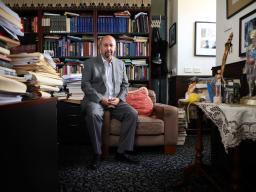The crisis of the COVID-19 pandemic has flushed out a gaggle of historians of medicine, all of us eager to read the lessons of history or, alternatively, make preliminary sketches for a history of the present. What do the various modes of historical analysis have to contribute to understanding our current predicament? Drawing on a radical tradition of social medicine, Rosenberg explains how the response to epidemics generally follows a pattern, though employing a flexible repertoire or fluid dramaturgy. The way we get busy with an epidemic thus can reveal otherwise hidden or overlooked dimensions of our society, its structural flaws, harsh discriminations and prejudices, and deep-seated cultural assumptions—showing us the socioeconomic and political roots of the problem. Epidemics act as indicative stress tests or social sampling devices. Cholera epidemics performed such a role in the nineteenth-century United States; COVID-19 does so here and now. What might the analogy tell us? What does historical analysis reveal of the way we live now?
Warwick Anderson, MD, PhD, is the Janet Dora Hine Professor of Politics, Governance and Ethics in the Department of History and the Charles Perkins Centre, University of Sydney, where he was previously an Australian Research Council Laureate Fellow (2012-17). A fellow of three learned academies and a former Guggenheim Fellow, he has taught at Harvard, Melbourne, UCSF and Berkeley, and the University of Wisconsin-Madison; and he is an honorary professor in the School of Population and Global Health at the University of Melbourne. His books include The Cultivation of Whiteness: Science, Health and Racial Destiny in Australia (Melbourne 2002; Duke 2006); Colonial Pathologies: American Tropical Medicine, Race, and Hygiene in the Philippines (Duke 2006; Ateneo de Manila 2007); The Collectors of Lost Souls: Turning Kuru Scientists into Whitemen (Johns Hopkins 2008), which was awarded the William H. Welch Medal of the American Association of the History of Medicine (2010), and the Ludwik Fleck Award of the Society for Social Studies of Science (2010); and (with Ian R. Mackay) Intolerant Bodies: A Short History of Autoimmunity (Johns Hopkins, 2014). Two of his books have won the NSW Premier’s Award in General History. With Deborah Jenson and Richard Keller he edited Unconscious Dominions: (Duke 2011); with Miranda Johnson and Barbara Brookes, Pacific Futures: Past and Present (Hawaii 2018); and with Ricardo Roque and Ricardo Ventura Santos, Lusotropicalism and its Discontents (Berghahn, 2019). He recently has edited (with Gabriela Soto Laveaga) a forum in History and Theory (2020) on decolonizing histories of science; and (with Susan Lindee) a special issue of Historical Studies in the Natural Sciences (2020) on genetic studies of Indigenous peoples in the Pacific and Australasia. His latest article on COVID-19 is: ‘The Model Crisis, or How to Have Critical Promiscuity in the Time of Covid-19’, Social Studies of Science 52 (2021): 167-88.
Location
Speakers
- Professor Warwick Anderson
Contact
- HAL Administration
